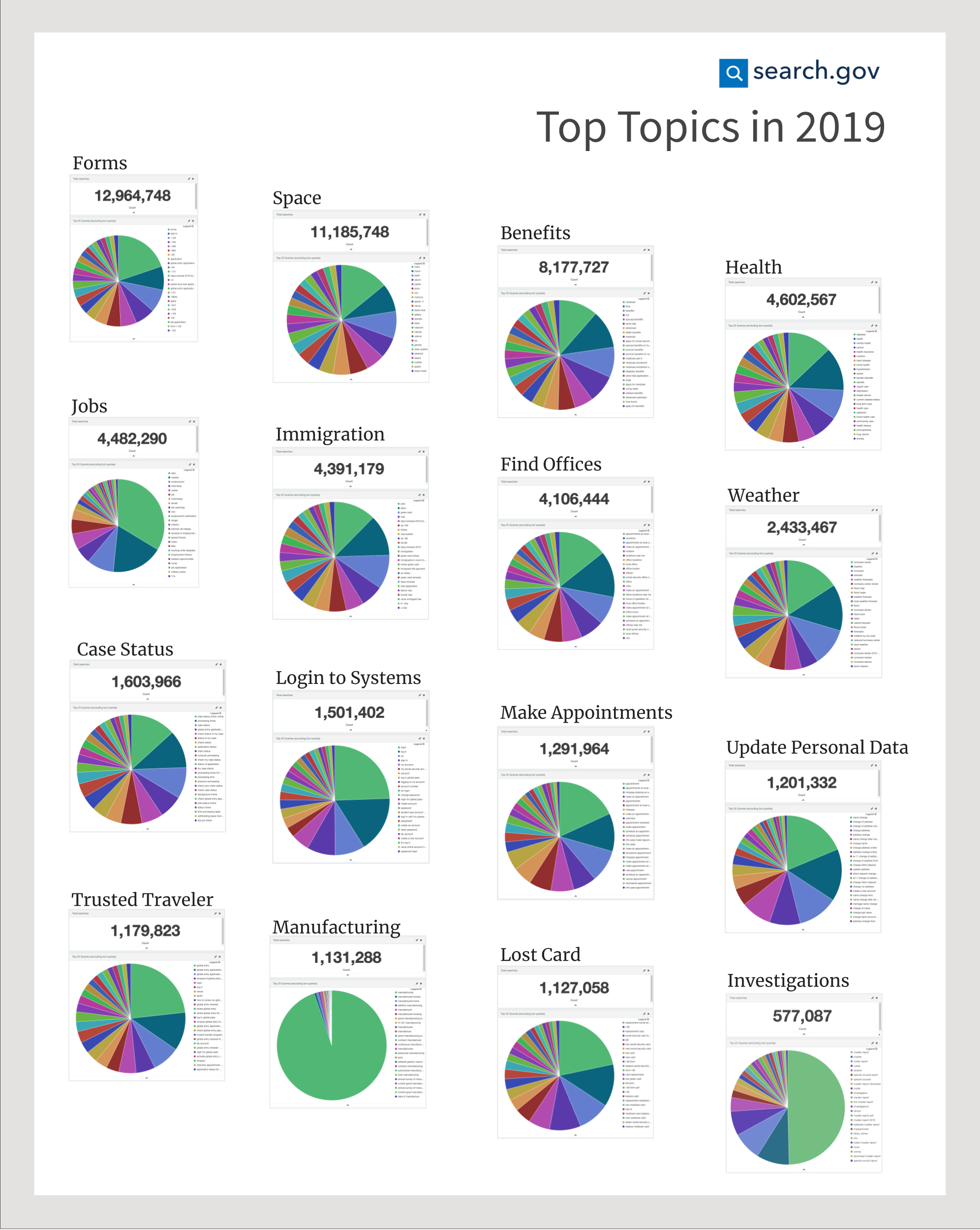February 2020 Newsletter
Summary
Join our focus group March 4 to talk about faceted search. Read on for multilingual SEO tips. And ICYMI, our 2019 Year In Review.
You’re Invited!
Focus Group on Faceted Search and Metadata-Driven
Search As announced in our December Newsletter, we will be hosting a virtual focus group on March 4 (11am-12pm ET) to discuss metadata-driven search and faceted search. Based on the multiple inquiries we’ve received for this functionality, we want to know more about your search needs around these in-demand features. The objective of this focus group is to learn more about (1) how you manage metadata for your web content, and (2) how you envision using it in your search experience. If you would like to participate in this conversation, please contact us here. To prepare, we created a Google form for you to share information about your setup and needs. Please complete it at your earliest convenience, as we’ll use the information collected to inform the agenda for the discussion. All are welcome to fill out the form, even if you’re unable to attend the focus group. If you’re unable to use Google forms, email us for the questions. Here are the details to participate:
March 4, 2020
11am-12pm ET
https://zoom.us/j/2753359581
Meeting ID: 275 335 9581
One tap mobile
+16465588656,,2753359581# US (New York)
+16699006833,,2753359581# US (San Jose)
Dial by your location
+1 646 558 8656 US (New York)
+1 669 900 6833 US (San Jose)
Meeting ID: 275 335 9581
Zoom
SEO Pro Tip
SEO for Multilingual Websites
There are several things you can do to help improve the overall search experience for visitors of multilingual websites. When it comes to multilingual search engine optimization (SEO), you want to make sure that your visitors are seeing the correct pages for their location. You also want to avoid duplicate content. Here are 5 recommendations to achieve good SEO for multilingual websites:
Use dedicated URL patterns: It’s recommended to use dedicated URL patterns that include a language indicator. The indicator enables search engines and users to identify the language from the URL alone. For example, an original English page might be www.example.gov, while the Spanish version could be www.example.gov/espanol/. The placement of the language indicator in the URL depends on the domain structure you choose. For example:
- Subdomain (e.g. www.es.example.gov)
- Subdirectory (e.g. www.example.gov/espanol)
Apply hreflang meta tags: This helps indicate the language of the page.These tags can be inserted in the section of the original page or submitted via a sitemap. For example, an hreflang meta tag on an English page referencing a Spanish page intended for readers in United States could look like this:
Use one language per page: Multiple languages on a page could weaken the user experience. If the content on your page is in Spanish, make sure the header and navigational components are also in Spanish, and the lang attribute in the opening html tag declares the page as being in Spanish.
Important: Please do not put Spanish content onto a page with an English header and navigational elements and an opening tag.
Translate your metadata: Your website’s metadata is a crucial piece of text that will help your site rank better. However, it’s not as simple as just translating the metadata word for word. What might be a keyword within the original language of your site, won’t necessarily be the same for your translated site. This means you’ll need to conduct further keyword research based on your target audience.
Make sure your website loads fast: one of the relatively easy things you can do for your multilingual SEO (and SEO in general) is to make your website fast as it plays a role as a ranking factor for search engines.
Read Google’s tips for multilingual SEO
In Case You Missed It
The searches that shaped 2019 and our System Highlights
 In December we shared our our 2019 in Search.gov report.
In December we shared our our 2019 in Search.gov report.
The year in numbers:
- 295,916,305 queries
- ~2,000 gov websites
- 16 top topics
Some of the most searched query topics:
- Forms
- Space
- Benefits
- Health (physical and mental health)
- Jobs
System Highlights:
- Added ranking factors to our search algorithm (popularity, freshness)
- Released help documentation about site launches and the indexing process
- Added a sitelimit feature to provide an alternative to Collection search scoping
- Added indexing coverage for javascript pages and other metadata-only files.
- Increased security on user accounts
- Automatic disabling after 90 days of inactivity MFA login through Login.gov Upgraded our core software: Rails, Elasticsearch, etc.
Release Notes
Want to learn about the latest features, fixes, and focuses of the Search team? We post monthly Release Notes on our website.
